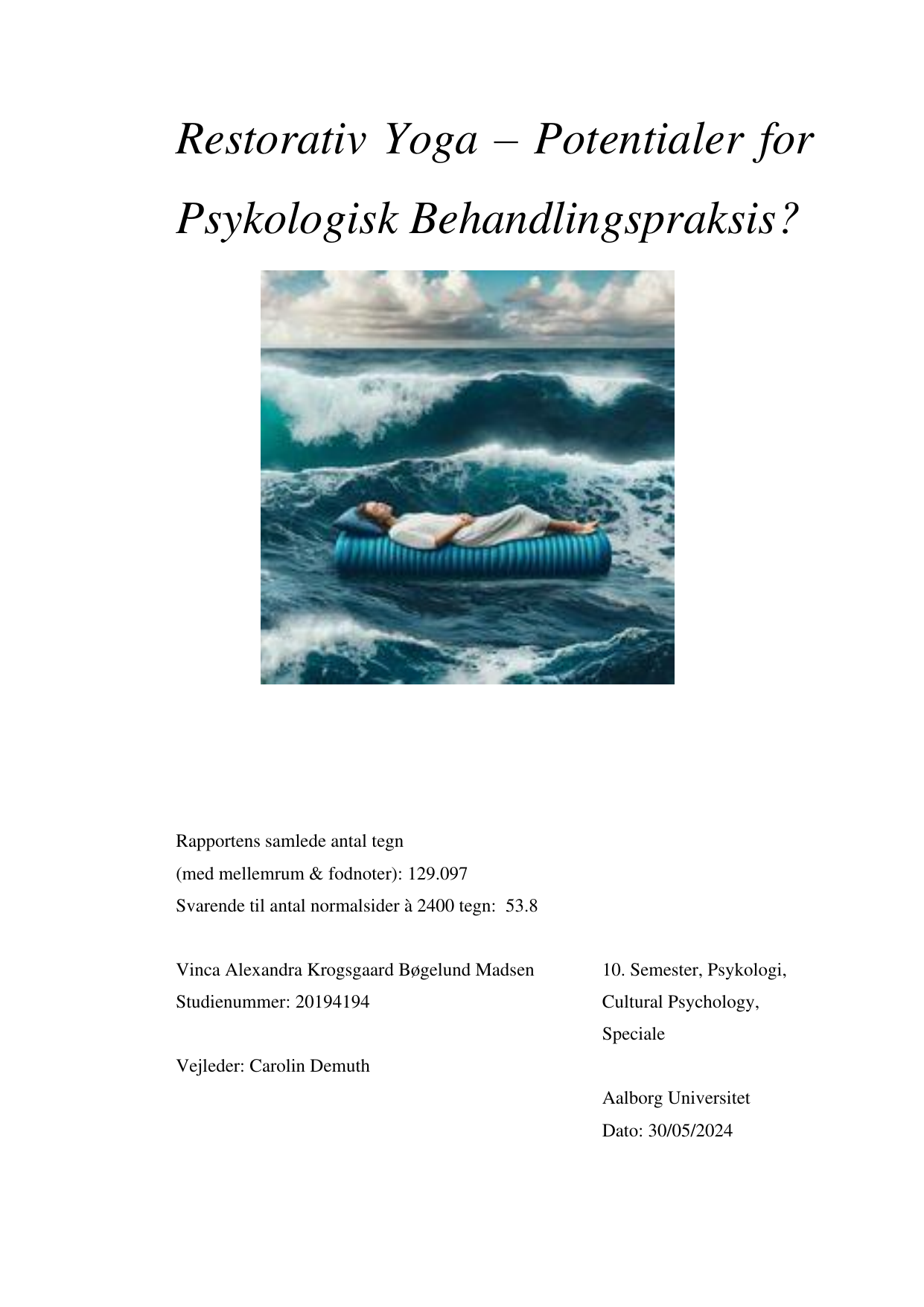
Restorativ Yoga - Potentialer for Psykologisk Behandlingspraksis?
Oversat titel
Restorative Yoga - Potentials for Psychological Treatment Practice?
Semester
4. semester
Uddannelse
Udgivelsesår
2024
Afleveret
2024-05-30
Antal sider
54
Abstract
Mind-body practices continue to increase in popularity, and studies indicate that these practices contain significant potential in terms of improving mental and emo-tional states. Even though yoga is one of the most often examined mind-body prac-tices, yoga practices are frequently treated as one and the same, not considering that these practices vary greatly in how they are performed, thus creating significant la-cunae in understandings of how exactly each intervention can contribute to mental and emotional health. Restorative Yoga is a unique form of yoga, which contains elements of both physical, mental, and emotional character, and the focus of this the-sis is to examine how Restorative Yoga can be understood theoretically, empirically, and in the context of clinical psychology. This project thus examines Restorative Yoga via its theoretical underpinnings, empirical findings, and relevant theoretical frameworks, to assess potential implications for clinical psychological practice. The-oretical underpinnings of Restorative Yoga describe this practice as a combination of physical postures, breathwork, mindfulness and visualizations. Empirical findings indicate that Restorative Yoga can lead to a variety of positive effects, but the exist-ing literature is limited in both number of studies which have been completed, and in level of transparency in terms of accounting for exactly how the interventions have been carried out. Based on a review of 15 articles examining Restorative Yoga as intervention, and on supplementary empirical findings, it seems plausible that the physical positions and type of breathwork used in Restorative Yoga, can affect ac-tivity in the autonomic nervous system, particularly by enhancing activity in the par-asympathetic nervous system, which can potentially affect inner states, including cultivating a sense of calm and safety. Elements of mindfulness in Restorative Yoga offer an explanation as to why Restorative Yoga can lead to effects such as reduced stress, reduced anxiety, reduced depression, and enhanced cognitive function. Ele-ments of visualization can further contribute to understandings of why Restorative Yoga can lead to increased positive affect and decreased negative emotions. This field would benefit from an increase in number of studies, with higher levels of transparency in terms of the use of breathwork, mindfulness and visualizations, but the findings in this thesis indicate potential in terms of applying Restorative Yoga in clinical psychological practice, if individual client expectations are accommodated, and the therapeutic alliance is respected.
